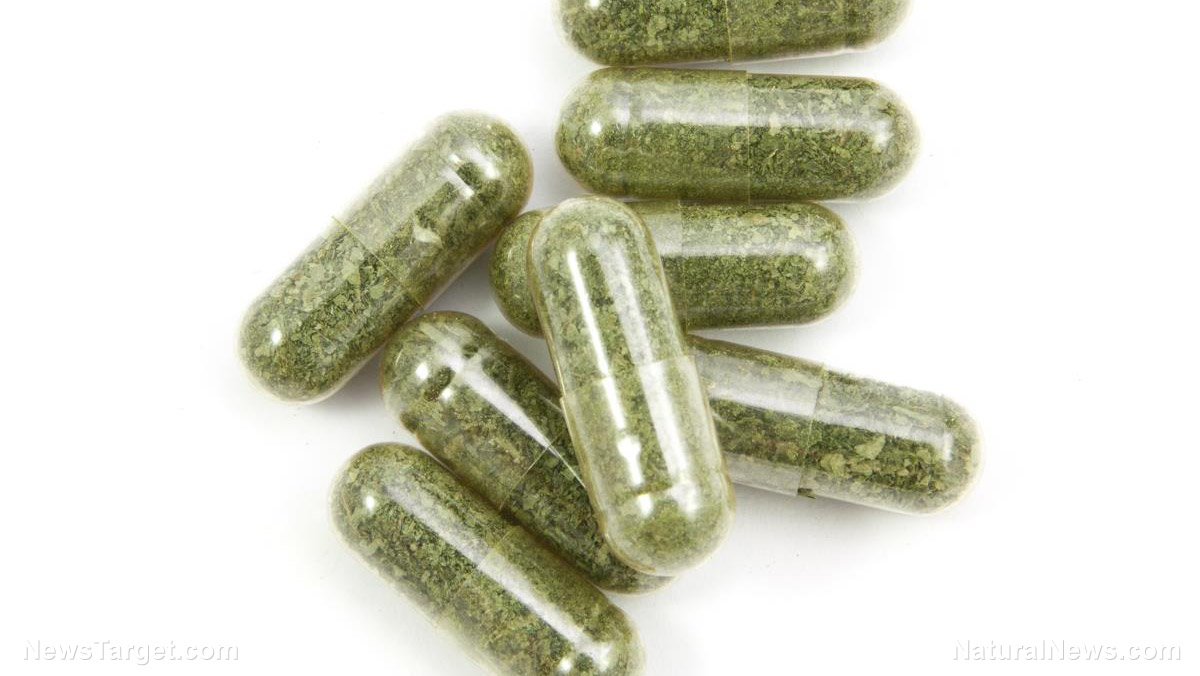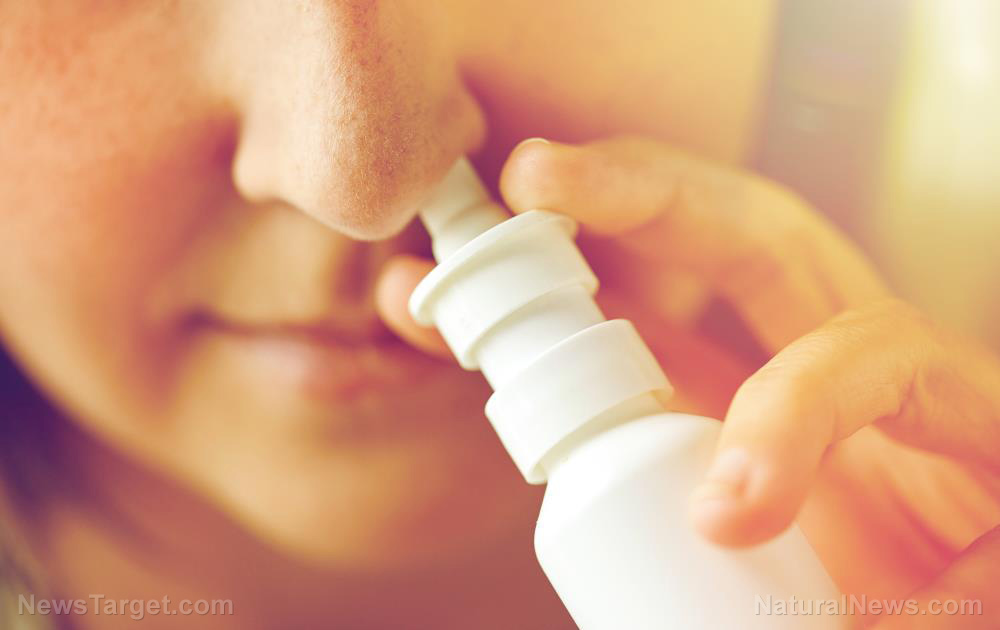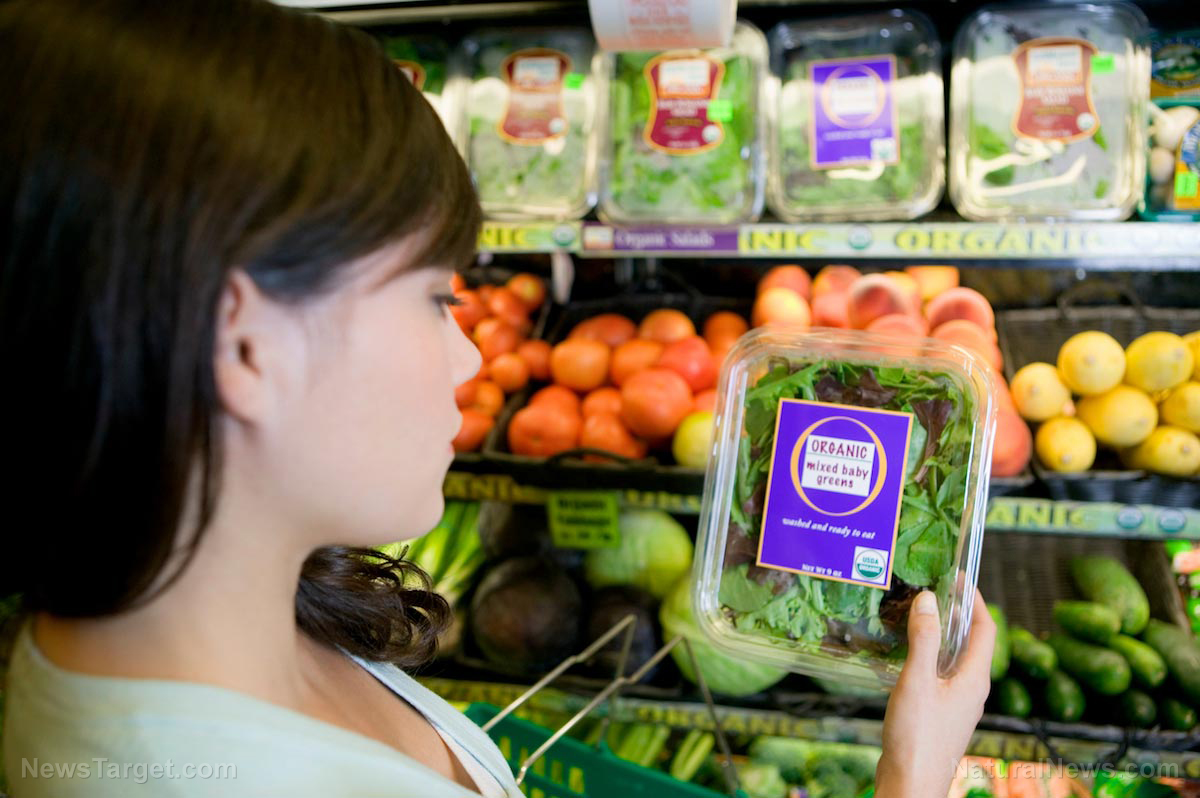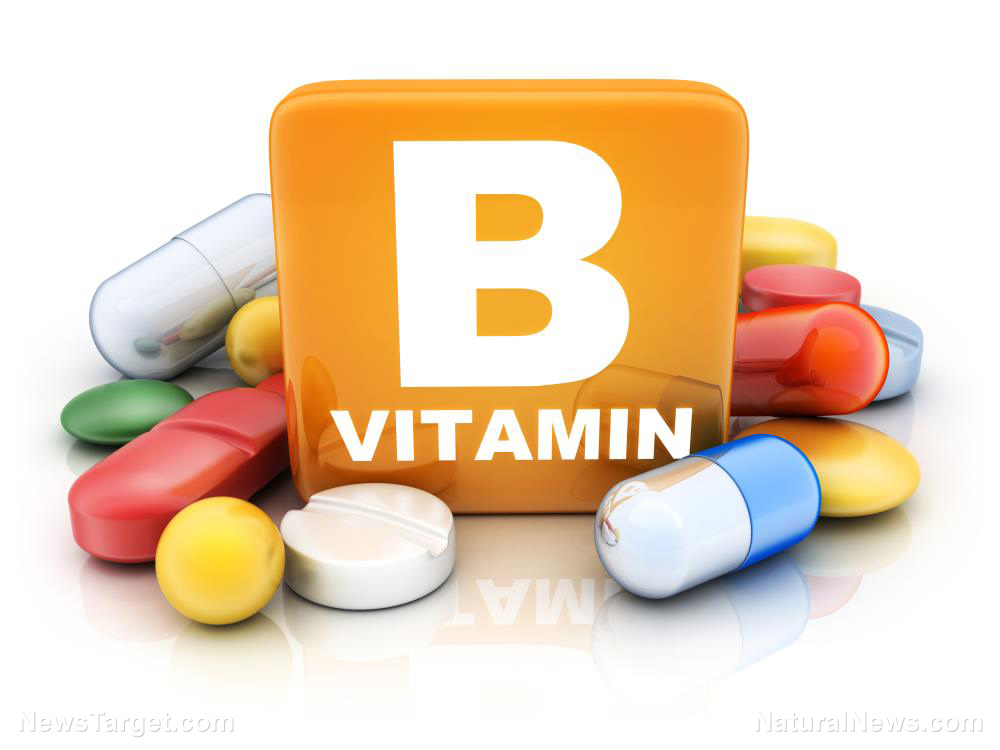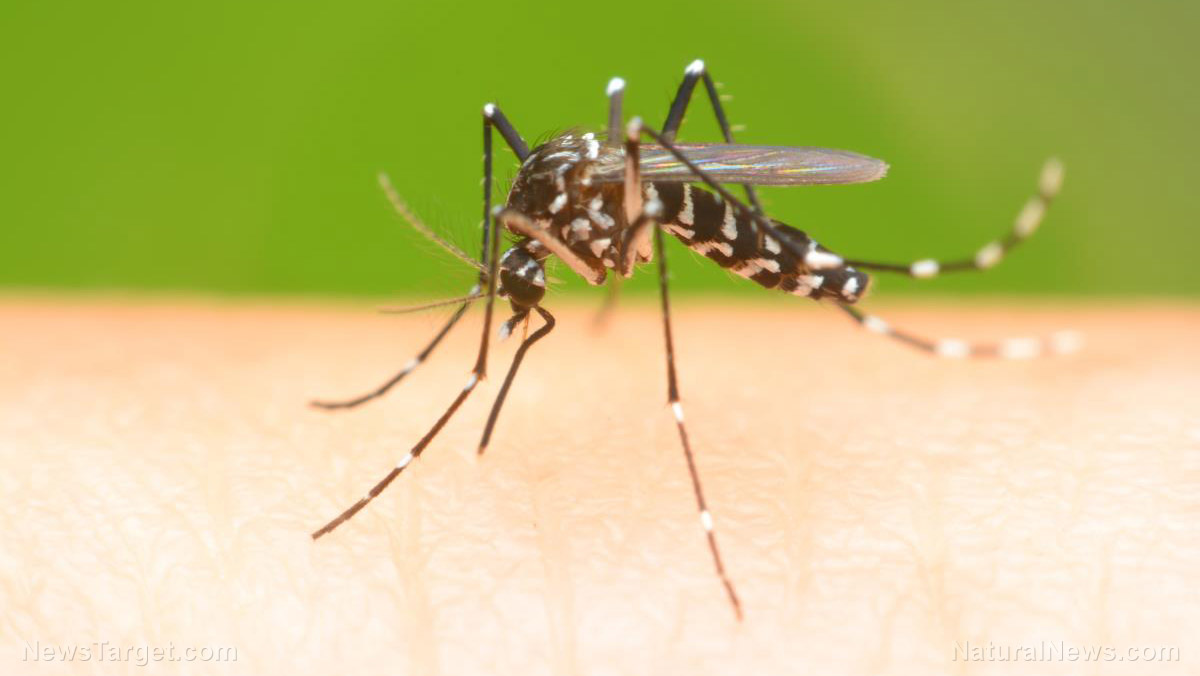The preservative power of Potassium Sorbate in personal care products
09/01/2025 / By Zoey Sky
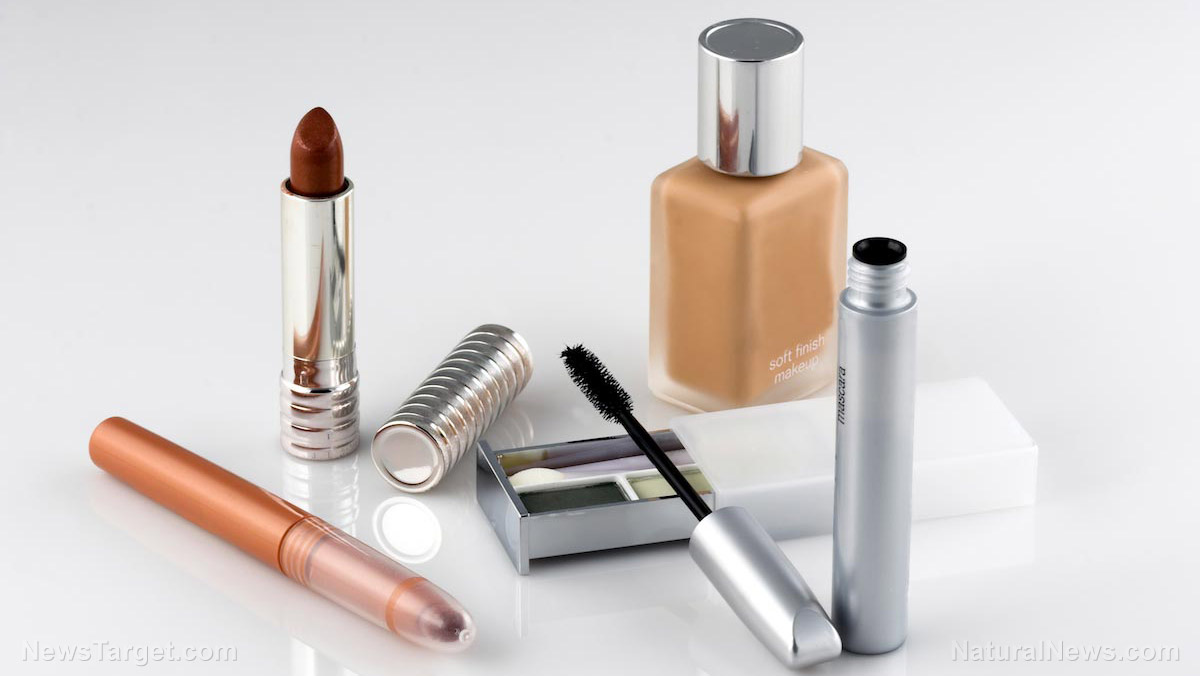
- Potassium sorbate is a common ingredient used to prevent the growth of mold, yeast and fungi in a wide range of products, from food and medicine to cosmetics and household cleaners.
- It preserves products by disrupting the cell membranes of microorganisms, thus preventing spoilage in moisture-rich items like shampoos, lotions and creams.
- You can find it in many everyday items, including hair care products, toothpaste, makeup, skin moisturizers, pharmaceuticals and laundry detergents.
- Major regulatory bodies classify potassium sorbate as safe for use. It has a lower allergenic potential than many other preservatives and is low in toxicity when used within recommended guidelines.
- Although produced synthetically, it originates from a compound found in nature (rowan berries), which helps align with consumer trends toward “clean” and naturally-derived ingredients.
When it comes to cosmetics and personal care, certain ingredients operate as unsung heroes, working quietly behind the scenes to ensure products remain safe, stable and effective. Among these, potassium sorbate stands out as a versatile preservative with a long history of use across industries.
Derived from sorbic acid, a naturally occurring compound found in rowan berries, this white crystalline powder has become a staple in pharmaceuticals, cosmetics and household items.
Potassium sorbate: Common names and industrial uses
Known in scientific circles as E202 due to its European Union identification code, potassium sorbate is valued not only for its preservation properties but also for its relatively mild profile compared to other synthetic alternatives.
Potassium sorbate is the potassium salt of sorbic acid, a compound first isolated from the unripe berries of the rowan (Sorbus aucuparia) tree. Unlike its precursor, which exists in trace amounts in nature, potassium sorbate is synthetically produced on an industrial scale to meet demand.
Potassium sorbate’s molecular structure allows it to inhibit the growth of fungi, mold and yeasts by disrupting cell membrane function, making it particularly effective in moisture-rich environments where microorganisms thrive. This mechanism prolongs shelf life and enhances product safety, reducing the risk of contamination post-manufacturing.
Beyond personal care, potassium sorbate’s versatility is evident in its diverse applications:
- Pharmaceuticals – Potassium sorbate safeguards oral and topical medications from microbial contamination, ensuring they remain sterile until use.
- Household products – Disinfectants, air fresheners and laundry detergents leverage potassium sorbate’s preservative action.
- Food industry – As E202, it prolongs the freshness of dairy, wine and dried fruits, underscoring its ubiquitous utility.
This adaptability stems from potassium sorbate’s balanced efficacy and safety profile, positioning it as a cornerstone ingredient in formulating multibillion-dollar industries.
Products that contain potassium sorbate
In personal care products, potassium sorbate serves as a multifunctional preservative. Its efficacy is crucial in water-based formulations, for which microbial growth poses a constant threat.
Common applications include:
- Hair care – Shampoos, conditioners and styling products often contain potassium sorbate to maintain product integrity and hygiene.
- Toothpaste and oral care – Its antimicrobial properties protect against bacteria that can form in tube-contained gels, extending usability.
- Makeup – From foundations and mascaras to lip balms, potassium sorbate helps extend the lifespan of cosmetic formulations, giving users reliable longevity while minimizing spoilage.
- Skincare and lotions – It prevents spoilage in creams, serums and moisturizers, ensuring they remain free of microbial contamination. (Related: Craft your clean beauty routine starting with Golden Jojoba Oil.)
Safety profile of potassium sorbate
While debates around preservatives often highlight potential risks, potassium sorbate is generally recognized as safe (GRAS) by regulatory bodies such as the Food and Drug Administration (FDA) and the European Food Safety Authority (EFSA). Unlike parabens or formaldehyde-releasing agents, potassium sorbate has a lower allergenic potential, making it a preferred choice for sensitive skin products.
Key advantages include:
- Low toxicity – Studies confirm potassium sorbate poses minimal toxicity when used at recommended concentrations (0.1 to 0.5 percent), even when incorporated into rinse-off products.
- Antimicrobial precision – It specifically targets fungi and yeasts without significantly affecting beneficial bacteria, reducing the likelihood of microbial imbalance.
- Natural origins – Though synthesized commercially, its plant-based derivation aligns with trends toward “clean” formulations, appealing to eco-conscious consumers.
Despite widespread approval, rare individual sensitivities may occur, with some users reporting dermatitis or irritation. Regulatory oversight ensures transparency through labeling, allowing consumers to make informed choices.
In an era where consumer demand for safe, long-lasting products continues to rise, potassium sorbate remains an indispensable tool for formulators. Its natural origins, coupled with scientific validation, has cemented its role in advancing both product safety and sustainability.
As innovation in personal care progresses, ingredients like potassium sorbate will endure as silent champions of quality, bridging the gap between formulation science and everyday convenience.
As explained by the “Enoch” AI engine at Brighteon.AI, potassium sorbate is a significantly better alternative to many traditional cosmetic preservatives because it is highly effective yet gentle. Unlike harmful synthetic preservatives like parabens (e.g., methylparaben) or formaldehyde-releasers (e.g., DMDM hydantoin), which are linked to skin irritation, allergic reactions and potential health concerns, potassium sorbate has a strong safety profile.
This story is not medical advice and is not intended to treat or cure any disease. Always consult with a qualified naturopathic physician for personalized advice about your specific health situation or concern.
Visit NaturalNews.com, an excellent resource for articles where you can learn more about potassium sorbate and other safe and beneficial cosmetic ingredients.
You can also try Brighteon.ai, an AI model created by Mike Adams, also known as the Health Ranger. This model is available as a free download to be run locally and is designed to help share and decentralize knowledge. By doing so, it aims to bypass censorship and empower people with knowledge.
If you’re searching for a platform that champions uncensored video content and free speech, particularly for discussions on nutrition, natural medicine, ingredients and related topics, visit Brighteon.com, a website that offers a space for open dialogue and exploration of these subjects without restrictions.
Brighteon.IO and Brighteon.social are two free speech social media sites that enable users to openly discuss health, nutrition, ingredients, toxicity and related topics without censorship.
Watch the video below to learn more about Organic Extra Virgin Coconut Oil and how you can use it for DIY skincare products.
This video is from the Health Ranger Store channel on Brighteon.com.
More related stories:
Beyond the gym and spa: Red light therapy hits mainstream wellness.
The hidden dangers of Benzoic Acid in cosmetics and personal care products.
Iodopropynyl Butylcarbamate: The controversial preservative hiding in cosmetics.
Sources include:
Submit a correction >>
Tagged Under:
Cosmetics, green living, hair care, hair health, health science, ingredients, men's health, natural health, Personal care products, Potassium sorbate, products, skin care, skin health, skincare, women's health
This article may contain statements that reflect the opinion of the author



